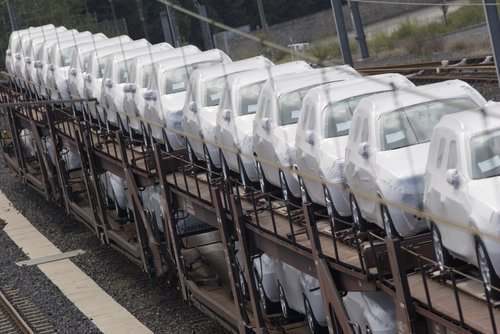Even Germany, as an export nation, has to compete for shares on its sales markets. The cost for businesses to manufacture goods plays a vital role in this process. An interactive graphic by the Cologne Institute for Economic Research (IW Köln) reveals the following: when unit labour costs increase in comparison to the competition, export performance generally declines.

Export performance: Unit labour costs shape international trade
When a national economy gains or loses shares in the world’s markets, there is usually a direct tie to the country’s unit labour cost position. This position indicates how high a product’s labour costs are in comparison to those of foreign competitors. An interactive chart developed by the Cologne Institute for Economic Research (IW) illustrates this connection in 16 surveyed countries: When the unit labour costs in the manufacturing industry decrease, an increase can usually be seen in the export performance. Conversely, higher unit labour costs are shown to be associated with a loss of market shares.
Germany suffered for many years as a consequence of decisions made in the past: The high-cost labour agreements at the beginning of the 1990s increased the cost of German industrial products at the time by one-fourth, relative to the competition. Thanks to its moderate wage policy, Germany has largely managed to reclaim its market shares since that time. Some countries have experienced the opposite: Finland and Sweden, for instance, first reduced their unit labour costs, but then went on to forfeit the market shares they had gained in the process.
Southern European countries, such as France, Italy and Spain, have also seen a considerable decline in export performance over the past years. The curves are particularly dramatic in the case of Greece: Before the euro was introduced, the unit labour cost position first declined, and exports increased at the same time. However, the common currency then led to a credit boom and to quickly escalating unit labour costs – with the country’s export performance seeing a corresponding decline. The relationship between costs and exports is not always as clear as in the European countries affected by the financial crisis. Japan, for example, has not managed to recover from its recession for decades – despite decreasing unit labour costs.
More on the topic

German Wage Policy between Inflation and Stagnation: Are Conflicts with the Aims of Monetary Policy Looming?
After the economic and financial crisis of 2008/9, the German labour market soon began to recover, creating scope for a comparatively expansive wage policy.
IW
The Pros and Cons of Trade Union Membership
The decline in collective bargaining coverage in Germany is often attributed to the reluctance of companies to join an employers' association which negotiates collective agreements.
IW